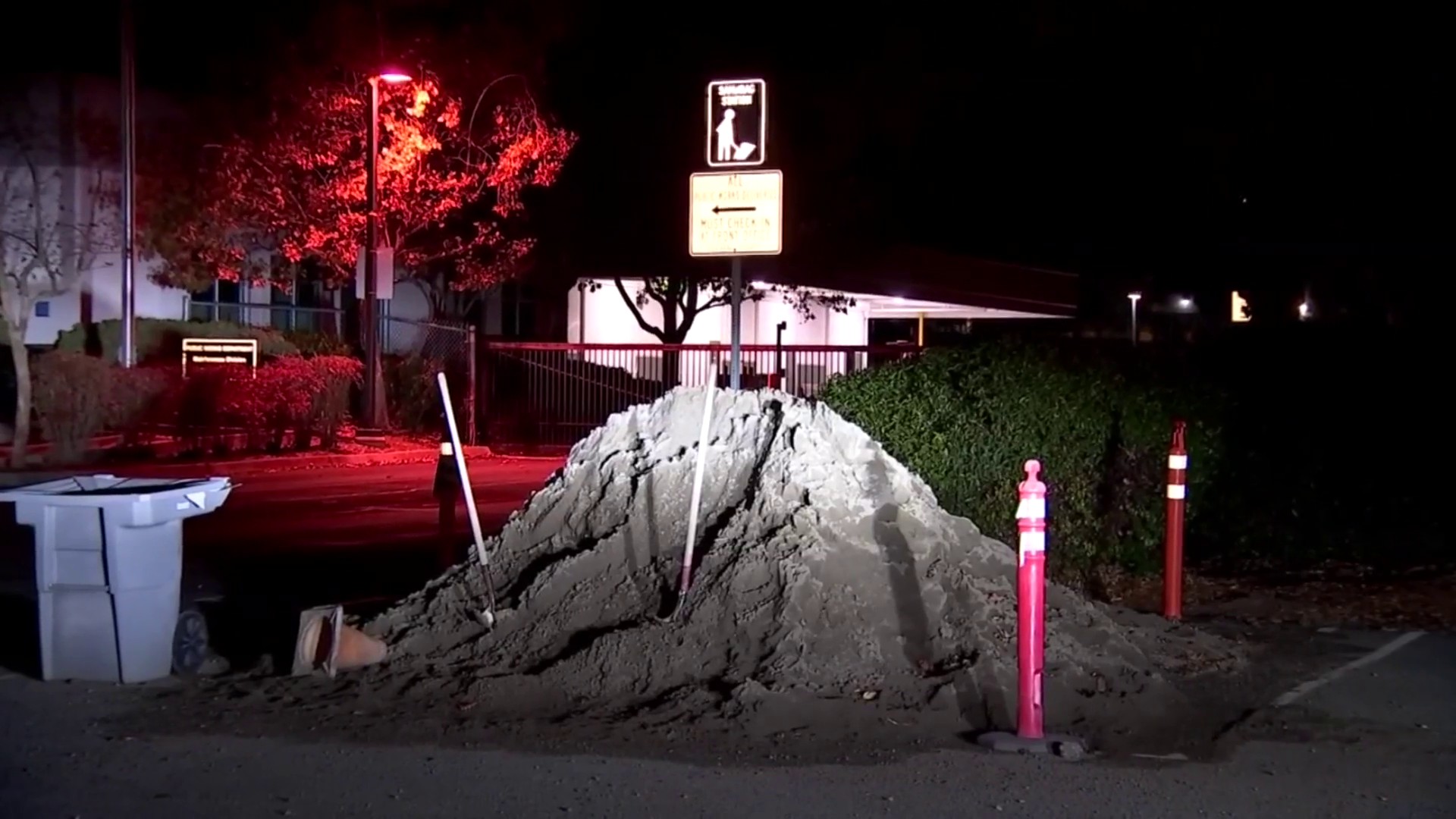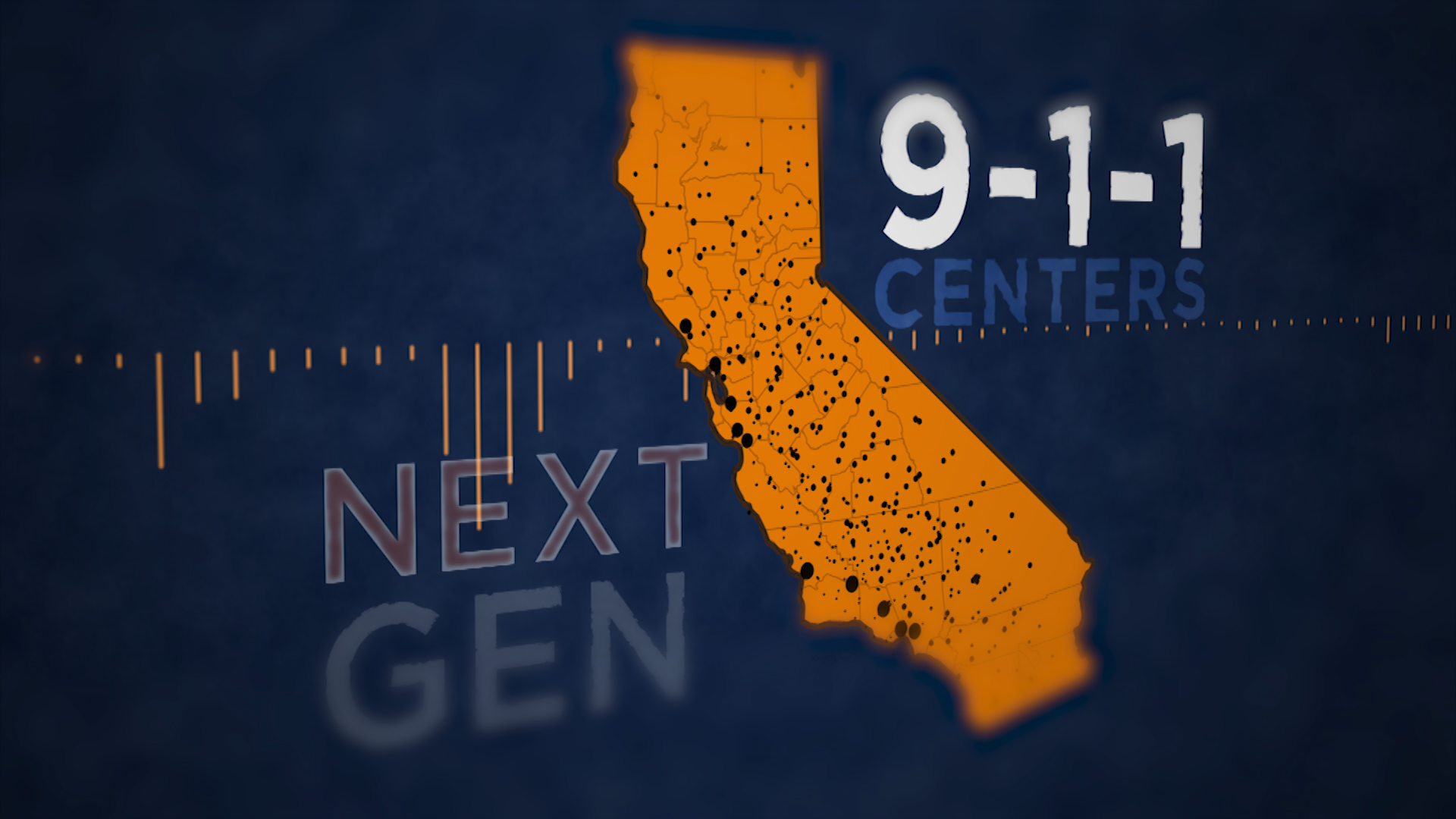California is on its way to acquiring 15,000 hotel rooms to house the homeless during the pandemic, said Gov. Gavin Newsom on Saturday as he reminded people to stay indoors while outbreaks continue to crop up throughout the state.
Standing in front of a Motel 6 outside the city of Campbell, Newsom said more than 4,000 people have been moved out of shelters and off the streets and into motel rooms. He took the opportunity to scold leaders of unnamed cities for blocking efforts to house the homeless, asking them to "please consider the morality."
His announcement came a day after the state reported another 87 deaths from the coronavirus. Meanwhile, California's death toll from the virus rose above 1,050 on Saturday, according to tally by John Hopkins University.
"We've certainly flattened the curve. The question is when are we going to see those numbers start to decline on a consistent basis as opposed to an episodic basis," he said.
The pandemic that has plunged California - the world's fifth-largest economy - into recession has hit hard. There are concerns the virus could sweep through the state's 150,000 homeless people, many of whom have chronic health conditions and lack safe places to quarantine themselves, health officials say.
Newsom, who made solving the state's homelessness crisis a priority even before the pandemic struck, announced in mid-March his administration was negotiating with 900 hotels to house the homeless.
Two weeks ago he announced Project Roomkey, a program in which the Federal Emergency Management Agency will pay 75% of costs associated with housing some homeless, including people who test positive or may have been exposed to the virus, and older homeless people and those with underlying health conditions.
He said Saturday that they have acquired nearly 11,000 rooms and housed more than 4,200, although his office has declined to say where. He also announced that Motel 6 would set aside 5,000 rooms in 19 counties.
More than 100 homeless people are in an undisclosed hotel on the west side of Los Angeles, said Va Lecia Adams Kellum, chief executive of St. Joseph Center, located in the Venice Neighorhood of Los Angeles.
Among the residents is a woman using a wheelchair ordered by her doctor to take hot baths for her physical and mental well-being, said Adams Kellum. Two other residents are in hospice care.
"So because of Project Roomkey these men are inside a comfortable room where they can get the comprehensive and palliative care they need and die with dignity,'' she wrote in an email.
Meanwhile, the nonprofit continues to feed needy people with to-go meals and bags of groceries. The statewide stay at home orders has made it much harder for homeless people to get food and water, and charge their phones or find a bathroom.
While praising municipalities that have stepped in to find temporary housing for the homeless, Newsom said Saturday there were "equivalent number of cities" that are blocking efforts to help the homeless but he wouldn't name them.
Local
Cities that are blocking these efforts, please consider the morality of those decisions, consider the moment we're in and the ethical question you're being called and asked upon, consider your station in life and in history. All of us will be judged,'' Newsom said.
Los Angeles County prosecutors requested an emergency hearing with a federal judge Friday, alleging the cities of Lawndale and Bell Gardens threatened to terminate city permits for hotels and motels that were participating in Project Roomkey.
Laguna Hills in Orange County is also pushing back against plans to convert a hotel into a lodging for homeless people, the Los Angeles Times reported Thursday.
On Friday, Los Angeles Mayor Eric Garcetti announced that next week the city will begin sending medical teams to the streets to screen people for the virus. In the next few weeks, teams will also begin offering fast-result COVID-19 field tests and those who are infected will be offered transportation to shelters and have hotel rooms set aside for them.
More than 30 homeless people have tested positive for COVID-19 in Los Angeles County, including six at a skid row shelter, health authorities said.
So far, San Francisco is the only city in California to report a large-scale outbreak at a homeless shelter, after more than 100 people tested positive, including 10 staff. None of the people was seriously ill when tested but three have since been hospitalized, said public health spokeswoman Rachael Kagan.
The state also reported for the first time Friday that there are 3,500 confirmed cases, or about 12% statewide, are in nursing homes or adult care facilities, where infections have spread quickly.
There have been signs the outbreak is slowing in the month or more since most of the state's 40 million residents found themselves under state and local orders to stay at home. Social distancing rules are being praised for that but they have hit the economy hard, shutting down schools, tourist spots and most restaurants and retail businesses.
But some have chafed under the restrictions and a rally was planned in San Diego on Saturday afternoon against California's stay-at-home order, one day after President Donald Trump urged his supporters to "liberate" three states under lock-down orders.
Newsom said he wasn't opposed to demonstrations but urged protesters to practice physical distancing while exercising their free speech.
"This virus knows no political ideology, it doesn't know if you're a Republican or a Democrat … practice physical distancing, make sure that you're not infecting others,'' he said.
In order to begin lifting restrictions that will allow the reopening of businesses, the state will need to test 25,000 people a day and track down those they may have infected, a big task in the nation's most populous state. Testing has been problematic for weeks across the U.S., with fewer than 20,000 administered each day, though testing sites continue to expand. Several areas have begun offering COVID-19 tests to people without symptoms.
"While California has excelled in so many categories, we have not in testing," Newsom said Saturday in an online conversation with former President Bill Clinton. He said the state had either been lacking specimens or diagnostic capacity to increase testing, but was optimistic the expansion of blood-based antibody tests will pave the way for contact tracing.
"But right now, we're not even close as a nation, let alone as a state, to where we should be on testing,'' he said.



